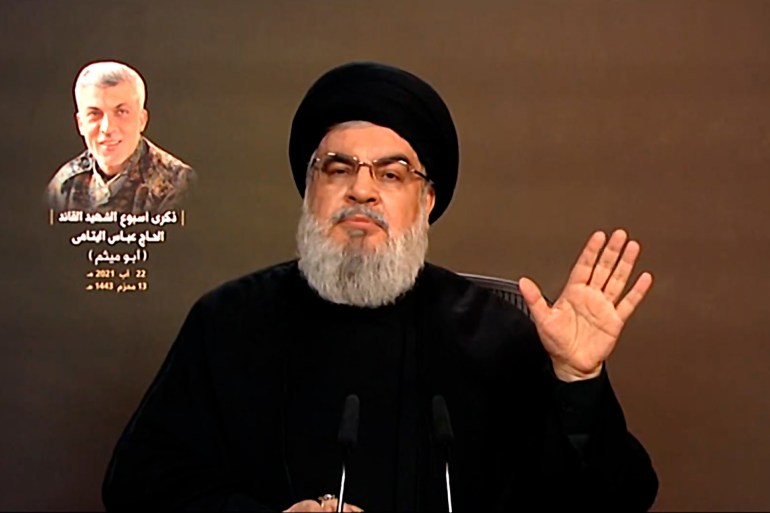The Lebanese security forces opened the coastal road linking the Lebanese capital, Beirut, and the north of the country, after protesters closed it this morning, Monday, in protest against the deteriorating economic and living conditions, especially the high price of fuel and power outages.
The closure of the highway in the areas of Zouk Mosbeh and Dora - at the northern entrance to Beirut - led to a severe traffic crisis for some time, before the security forces reopened it.
On Sunday, the Lebanese authorities raised the price of fuel by about 65%.
Iranian ships to ease the fuel crisis
In parallel with the worsening fuel crisis in the country, the Secretary-General of the Lebanese Hezbollah, Hassan Nasrallah, said on Sunday that ships loaded with Iranian fuel will sail soon to ease the fuel crisis in Lebanon, followed by other ships.
Hassan Nasrallah, while announcing yesterday, Sunday, that Iranian ships loaded with fuel will soon sail to Lebanon (Al-Jazeera)
Nasrallah clarified that the group does not assume the role of the state by purchasing fuel, adding that the first ship that the party announced last Thursday is about to set sail has already sailed.
The group's opponents in Lebanon have warned of dire consequences for the move, saying it could lead to sanctions on the country, whose economy has collapsed for nearly two years.
The arrival of Iranian fuel will open a new chapter in the financial crisis that the Lebanese state and the parties to the government, including Hezbollah, failed to address, in light of the fuel shortage that caused the outbreak of violence.
Nasrallah announced - last Thursday - that the first Iranian ship loaded with fuel will set off for Lebanon within hours, and other ships will follow.
In a speech on the occasion of Ashura, Nasrallah warned the American and Israeli sides against attacking the ship, pointing out that it was considered Lebanese territory from the moment it sailed from Iran.
He added that the fuel crisis was artificial and fabricated, and the state could have dealt with it from the first day, as he put it.
He pointed out that there are those who attribute the failure of the formation of the government to Hezbollah and Iran, stressing that this is not true.
Nasrallah considered that there is an economic war to impose options on the Lebanese that are not commensurate with their national interests, describing the US Embassy in Beirut as the headquarters of complicity in Lebanon.
Lebanon has been living for months with a stifling fuel crisis that has intensified with the Central Bank’s decision last week to lift subsidies on fuel imports, which led to a significant increase in prices and great chaos at gas stations.

